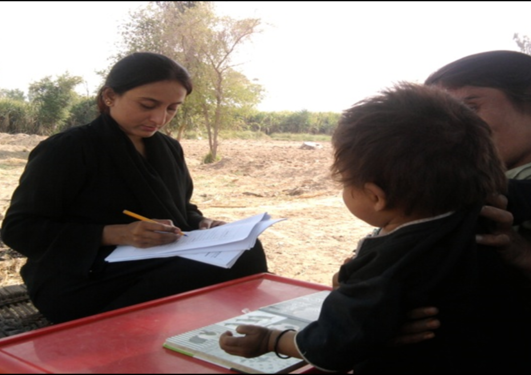SCALE-8
This study follows-up children included in a previous trial on integrated stimulation and nutrition intervention. Children in 80 population clusters were re-enrolled at the age of 8 years to assess the long-term effects on child development.
Hovedinnhold
Stimulation of children and effects on learning and education at 8 years
The SCALE-8 study seeks to assess the impact of exposure to early responsive stimulation and nutrition interventions and their effect on learning, behaviour and growth later in life.
More than 250 million children living in low- and middle-income countries (LMICs) are not achieving their full development potential due to biological, psychosocial and environmental risks. These risks include inadequate stimulation, malnutrition, infectious illnesses, maternal depression and societal violence.
The current study is a follow up to a previous project that assessed the effectiveness, feasibility and cost of integrated early stimulation and nutrition interventions in a government community-based health service. The initial study reported a significant impact on children’s development at age 2 years (36). There is evidence that these gains were sustained at age 4 years although with smaller impact. On the other hand there is very limited evidence of the enduring effects on later life outcomes in LMICs.
The current study will re-enroll children in 80 population clusters at age 8 years to determine which beneficial effects on learning, behaviour and growth have endured to school age. These data will provide insights on whether there are any sustained benefits and whether any particular sub-group of children have benefitted more or less from the exposure to early interventions. The data will also identify risks and protective factors that influence outcomes to inform the development of interventions.
Principal Investigator:
Muneera A. Rasheed, Aga Khan University, Pakistan
Co-Principal Investigator:
Aisha K. Yousafzai, Harvard T.H. Chan School of Public Health, USA

